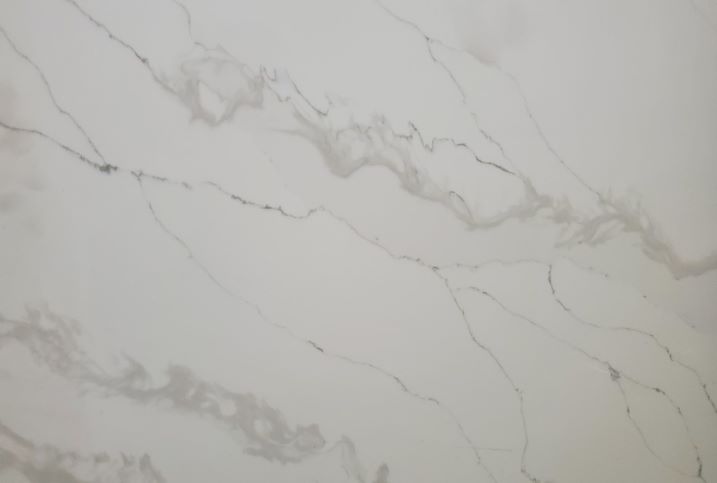When it comes to natural and engineered stone surfaces, choosing the right material for your countertops or surfaces is crucial. At The Slab Depot, we understand that choosing between quartz and quartzite can be confusing. In this blog post, we’ll unravel the distinctions between these two stunning materials to help you make an informed decision that aligns with your aesthetic preferences and practical needs.
Quartz: The Engineered Marvel

Quartz countertops are engineered by combining approximately 90-95% crushed natural quartz crystals with resins, polymers, and pigments. This meticulous process results in a non-porous and uniform surface. The manufacturing process allows for an extensive range of colors and patterns. Quartz surfaces can mimic the appearance of natural stones, such as marble or granite while offering a more consistent and uniform look. Quartz is known for its exceptional durability. Its non-porous nature makes it resistant to stains and bacteria, making it a low-maintenance and hygienic choice for kitchen and bathroom applications.
Quartzite: The Natural Elegance

Quartzite, on the other hand, is a natural metamorphic rock formed from sandstone subjected to intense heat and pressure. This natural process gives quartzite its unique veining and crystalline appearance. Quartzite’s natural beauty is characterized by its intricate patterns, vibrant colors, and sparkling crystals. Each slab is a unique piece of art, adding an element of exclusivity to your space. Quartzite is renowned for its remarkable hardness, making it resistant to scratches and abrasions. It is also heat-resistant, making it suitable for applications where hot pots and pans may touch the surface.
Key Considerations for Your Choice
If you appreciate the uniformity and design flexibility offered by engineered surfaces, quartz may be the ideal choice. For those drawn to the unique patterns and natural beauty of stone, quartzite is a compelling option. Quartz’s non-porous surface makes it resistant to staining and bacterial growth, requiring minimal maintenance. Quartzite, while durable, may benefit from periodic sealing to maintain its pristine appearance. Consider the intended use of the stone. Quartz’s consistency and durability make it ideal for high-traffic areas, while quartzite’s natural strength and heat resistance make it well-suited for kitchens and other demanding applications.
